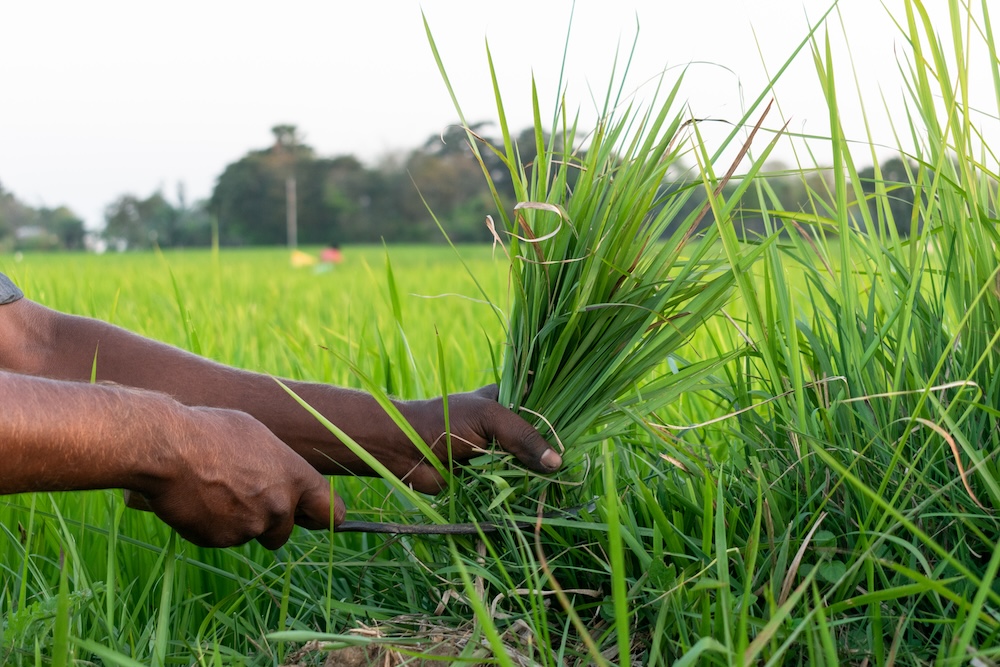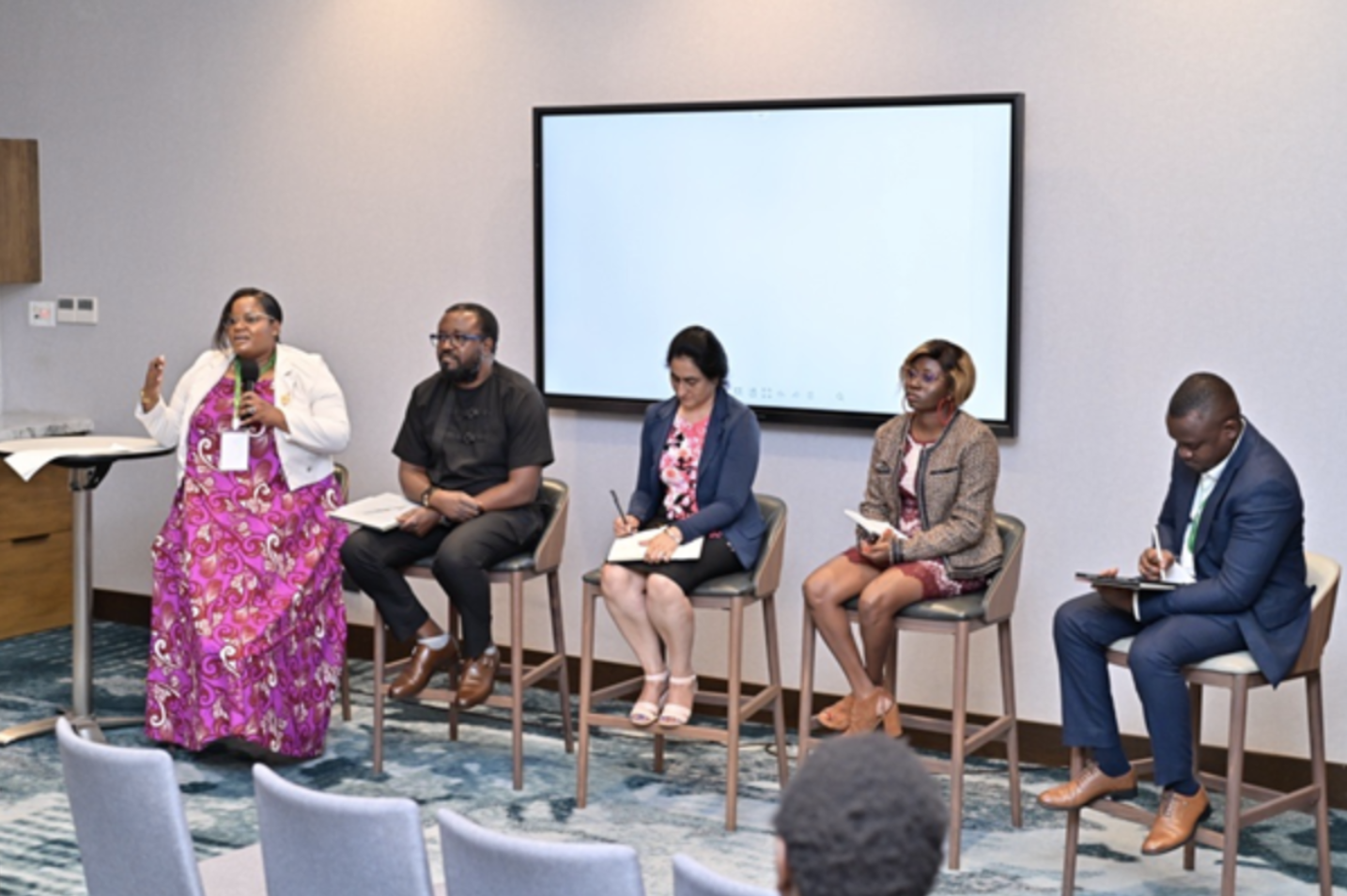
Impact Stories
Strengthening climate resilience in Africa through evidence mapping
Monday, July 29, 2024

By Kwadwo Dansho Mensah
Agriculture employs about 52% of the labour force of Africa, contributing significantly to the economy. This productivity is increasingly vulnerable to the impacts of climate change, which manifests through shifts in rainfall patterns, increased frequency, and intensity of extreme weather events, rising temperatures and alterations in the distribution of pests and diseases. All these events disrupt food security, livelihoods, and overall development, in turn making the understanding and implementation of climate change adaptation strategies in African countries essential to build resilience. This can ensure food and nutrition security and enhance livelihoods in the face of climate change.
Existing evidence of the effects of climate change adaptation strategies in Africa is fragmented and dispersed across various sources. This limits their utility in decision making by policy makers, governments, scientists, and funders. Our team at the International Centre for Evaluation and Development (ICED) will systematically review existing literature to produce evidence-based products on climate change adaptation strategies in Africa, focusing on the effects of climate change adaptation on food security and livelihoods. We will use this data to produce an Evidence and Gap Map (EGM), which offers a systematic and transparent approach to identifying, collating, organising, and analysing the existing literature on climate adaptation agriculture interventions and strategies in Africa (Gough et al., 2017; Lipper et al., 2014). Depending on the findings, we may also produce cellwise summaries and network analyses to further inform climate change adaptation strategies in Africa.
A successful EGM depends on robust stakeholder engagement so that it is based on real-world issues and priorities. The inclusion of academic and non-academic sources is essential for capturing diverse perspectives and experiences, particularly in a complex and multifaceted field like climate change and agricultural development. This collaboration enhances the relevance and applicability of the findings, making them more likely to be adopted and implemented.
ICED convened over 50 key experts in the climate change and agriculture sectors, in person and online, in May 2024. Their robust discussion helped to refine the Population, Intervention, Comparison, Outcome, and Study Design (PICOS) framework for the EGM.
The PICOS framework serves as the core of the EGM. Ours was developed collaboratively with our team advisor at ICED, Dr Howard White, and focuses on interventions aligned with the approach and priorities of the SFA Foundation, primarily in the agricultural sector. The team developed a coding tool with inclusion and exclusion criteria to be used to screen studies identified from both academic and non-academic databases. The search encompasses climate adaptation interventions related to cultivation and production systems (e.g., crop diversification, climate-tolerant varieties, and livestock breed selection); soil fertility and health systems (e.g., soil cover management practices and soil enrichment techniques); water systems (e.g., water storage and supplementary irrigation); energy systems (e.g., renewable energy sources); and natural resource management practices (e.g., vegetative management and biodiversity conservation). The study also examines risk support systems as an adaptation strategy, particularly how they influence the changing behaviour of farmers and farming households in Africa in response to climate shocks. Outcomes focused on food security and livelihoods.
Preliminary findings from our search of various academic databases, including SCOPUS and Google Scholar, shows relevant papers which meet our scope (PICOS). We are confident that the methodological and systematic rigor adopted reduces the risk of search bias and will produce relevant studies based on high-quality evidence, which are critical for producing reliable and actionable insights.
For the community, and for Africa as a whole, our results will have the potential to drive impactful changes. By identifying effective interventions and highlighting areas needing further research, the EGM can help improve agricultural practices, enhance food security, and promote sustainable development. This, in turn, will support economic growth, poverty reduction, and improved livelihoods across the region.
Moreover, because of these projects, we have been able to establish a community of experts within the climate change and agricultural sector to deliberate on climate change related issues.
Aside to receiving feedback from the community of experts, we also had trainings on evidence utilisation and synthesis (particularly on Meta Analysis). The main facilitators of the trainings were Dr Hugh Shama Waddington (Associate Professor, London School of Hygiene and Tropical Medicine) and Dr Howard White (Director of Evaluation and Evidence Synthesis, Global Development Network).
Dr. Kwadwo Danso-Mensah is a GC Africa grantee, an initiative of the SFA Foundation. He is conducting his research at the ICED office in Ghana. He is working closely with Dr David Ameyaw (CEO and President of ICED, and Team Lead), Dr Howard White (Team Advisor), Dr Joseph Clottey (Climate Change Specialist), Dr Charles Okyere, Dr Solomon Zena Walelign, Ms Clarice Panyin Nyan, and Dr Sheila Agyeman Oppong (all Research Associates) Read more about his research here.
About the Author(s)

Dr Kwadwo Danso-Mensah
Kwadwo Danso-Mensah is a Development Economist and currently the Director of Research at the International Centre for Evaluation (ICED) where he oversees all projects related to evidence generation and applied research for the organisation.



